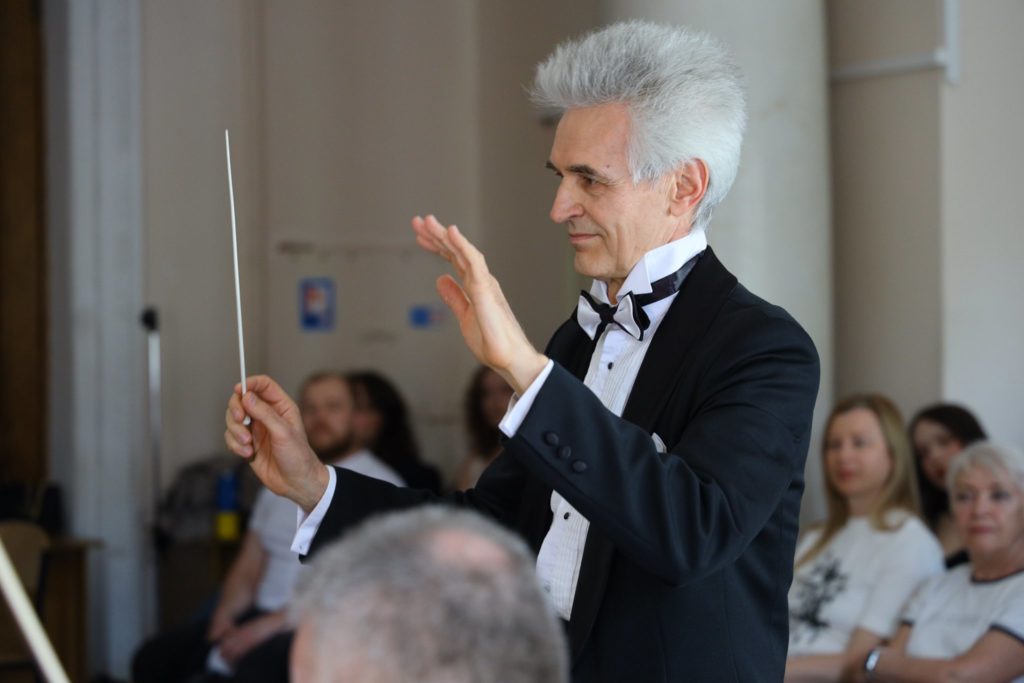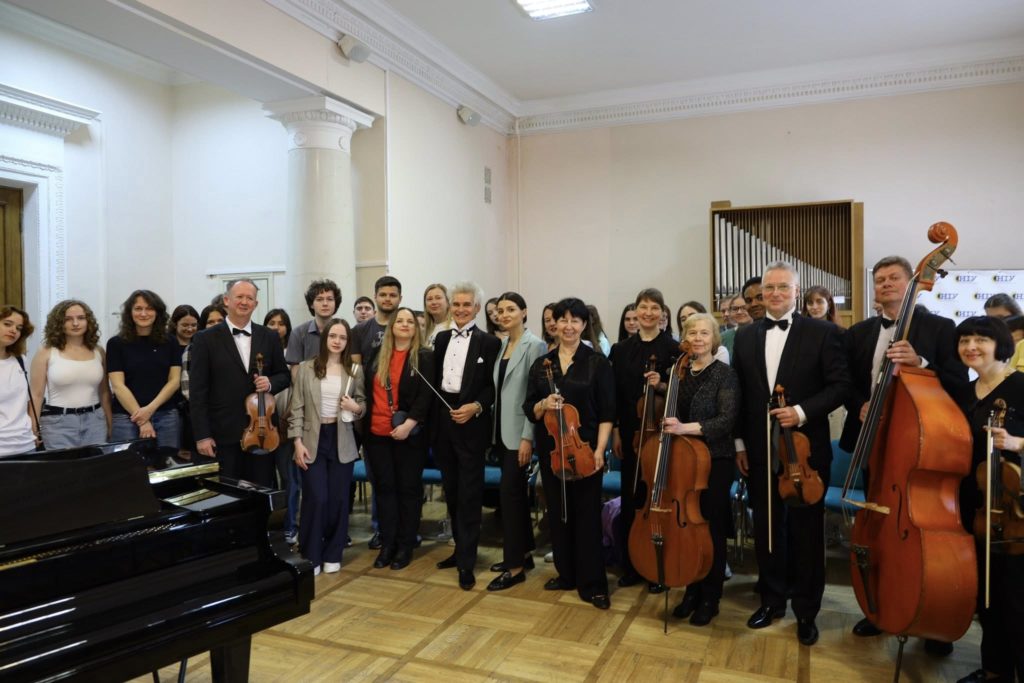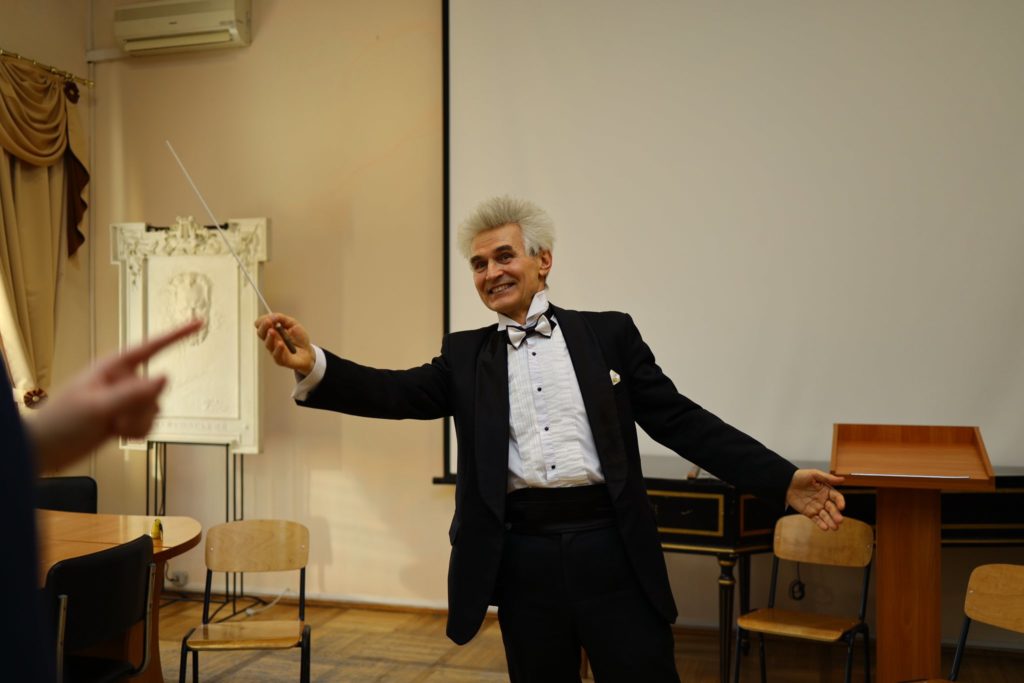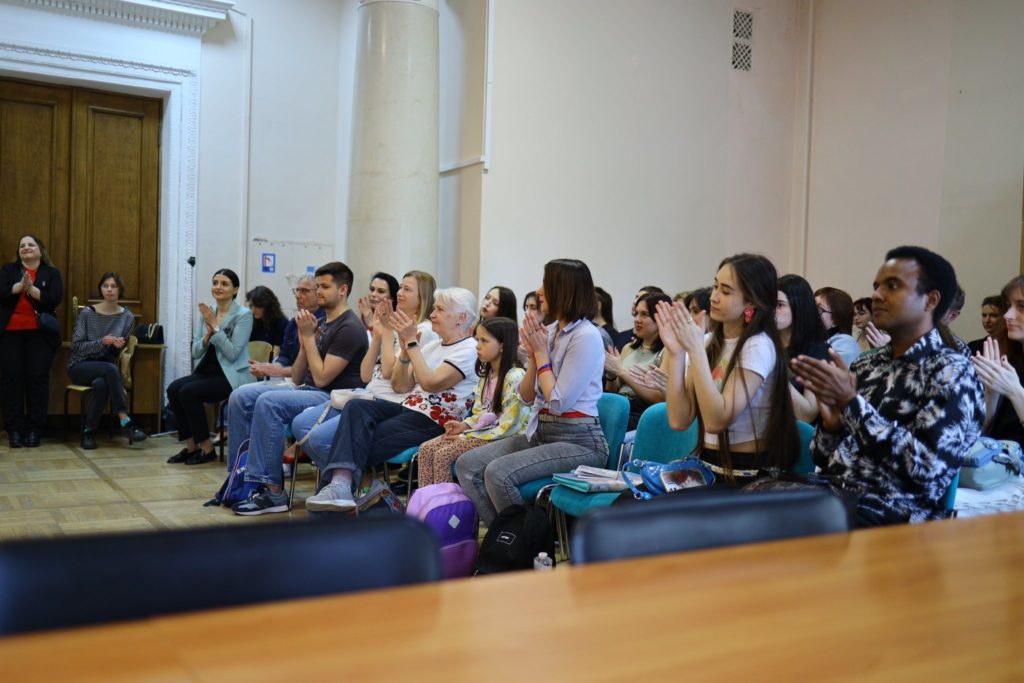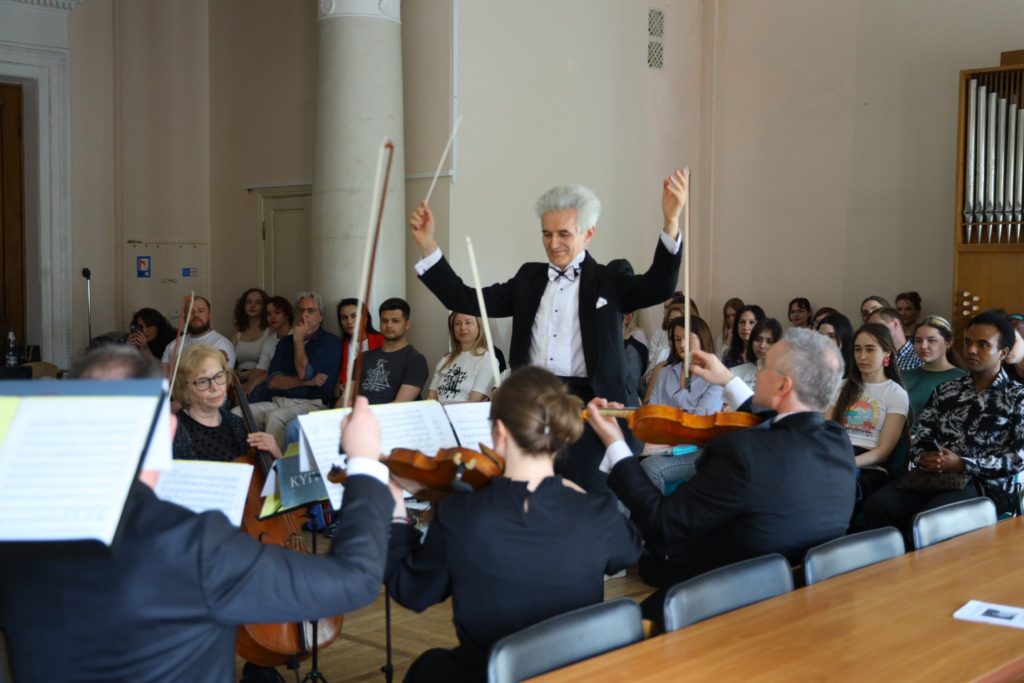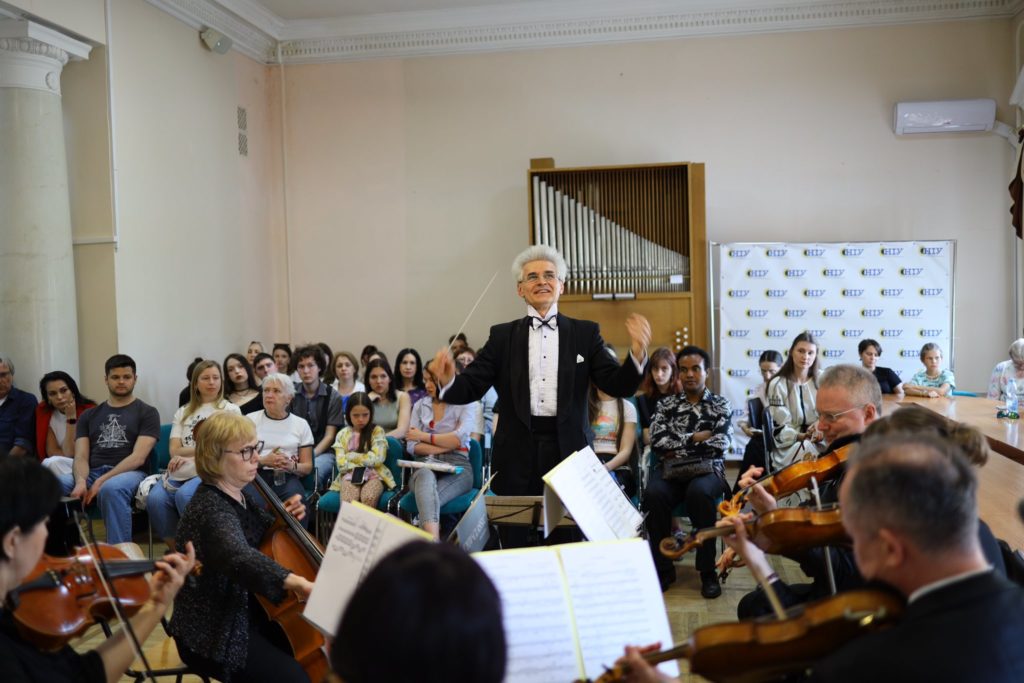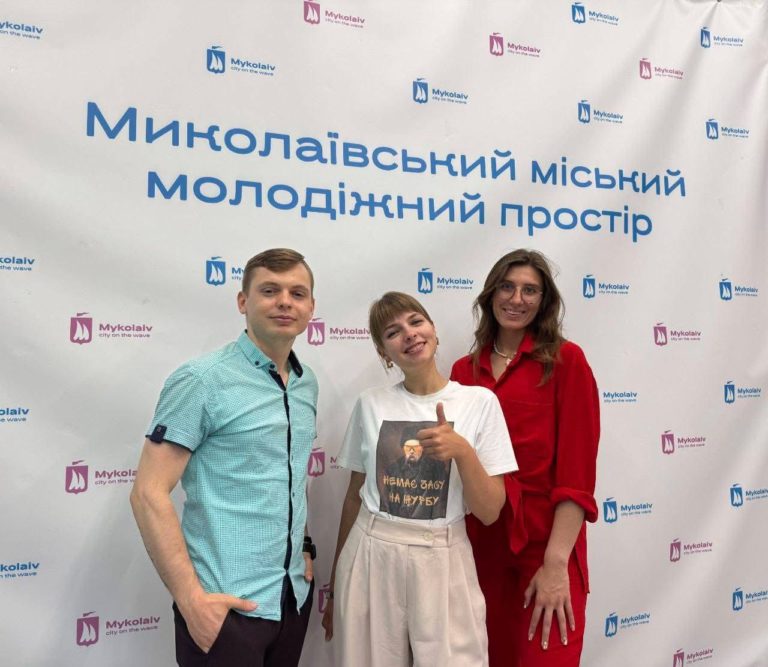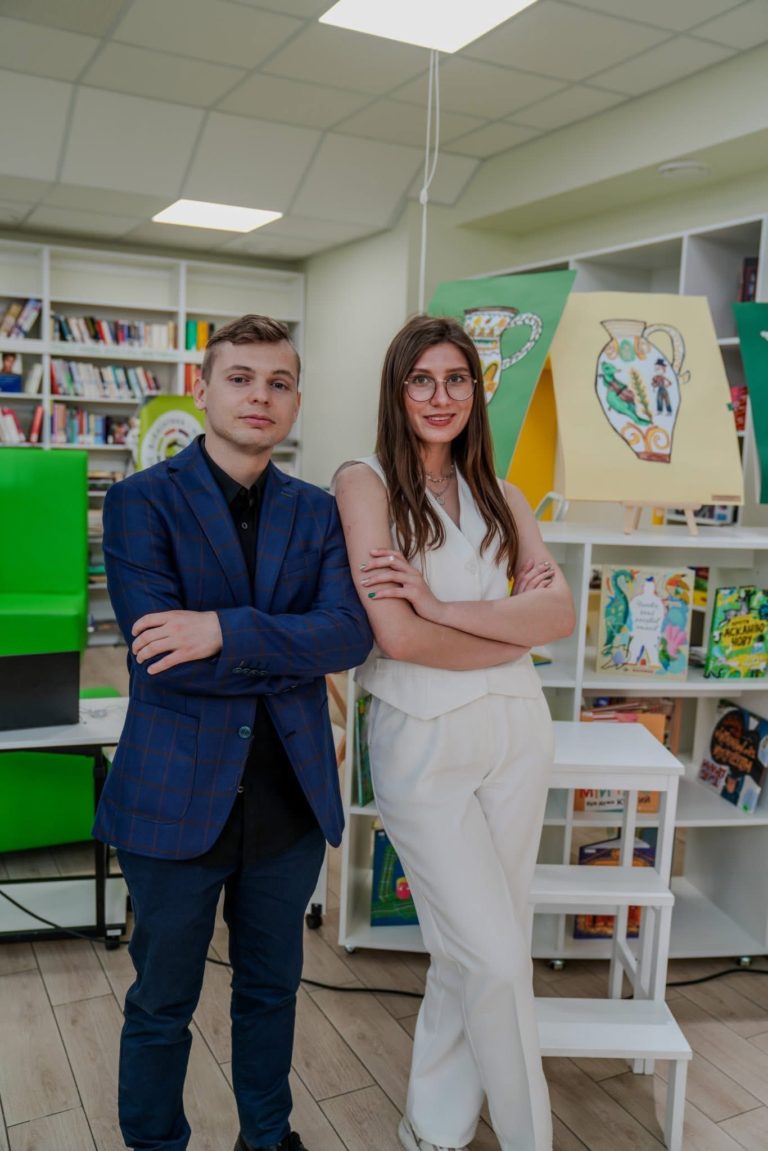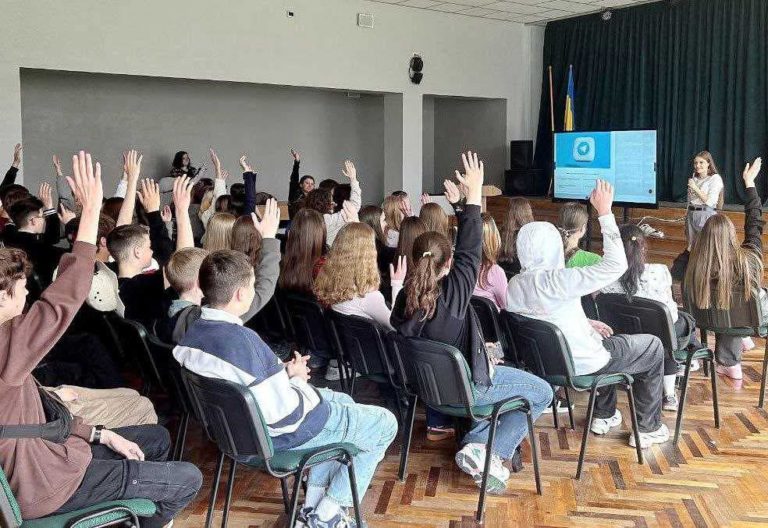Both teach us to listen—not just to hear, but to truly perceive, notice nuance, and sense what often goes unseen. Like media and information literacy, music cultivates an inner sensitivity to truth, harmony, and influence.
That’s exactly what happened yesterday in Kyiv during a unique masterclass, where young people spent time with the Kyiv Classic Orchestra—through conversation and sound, reflection and listening. Herman Makarenko, conductor of the National Opera of Ukraine, People’s Artist of Ukraine, and UNESCO Artist for Peace, guided us through the emotions, stories, and meanings woven into music.
We spoke about music’s impact—about how to distinguish the genuine from the artificial, and how art nurtures our ability to feel and, in turn, to think critically. And we also just listened. From Mozart to Skoryk, each piece opened a new dimension of sensitivity.
Fun fact: in ancient Greece, those who lacked knowledge of music were not allowed to hold public office. As Plato believed, “what sounds in the state shapes its soul.” Just like in media.
Thank you to the maestro and our partners for the collaboration during these extraordinary times!
The project is designed and implemented by the Souspilnist Foundations in cooperation with UNESCO Ukraine and with the support of 在ウクライナ日本国大使館 / Embassy of Japan in Ukraine. The project is part of UNESCO’s broader efforts to support the safety of journalists, media literacy, and freedom of speech in Ukraine.
